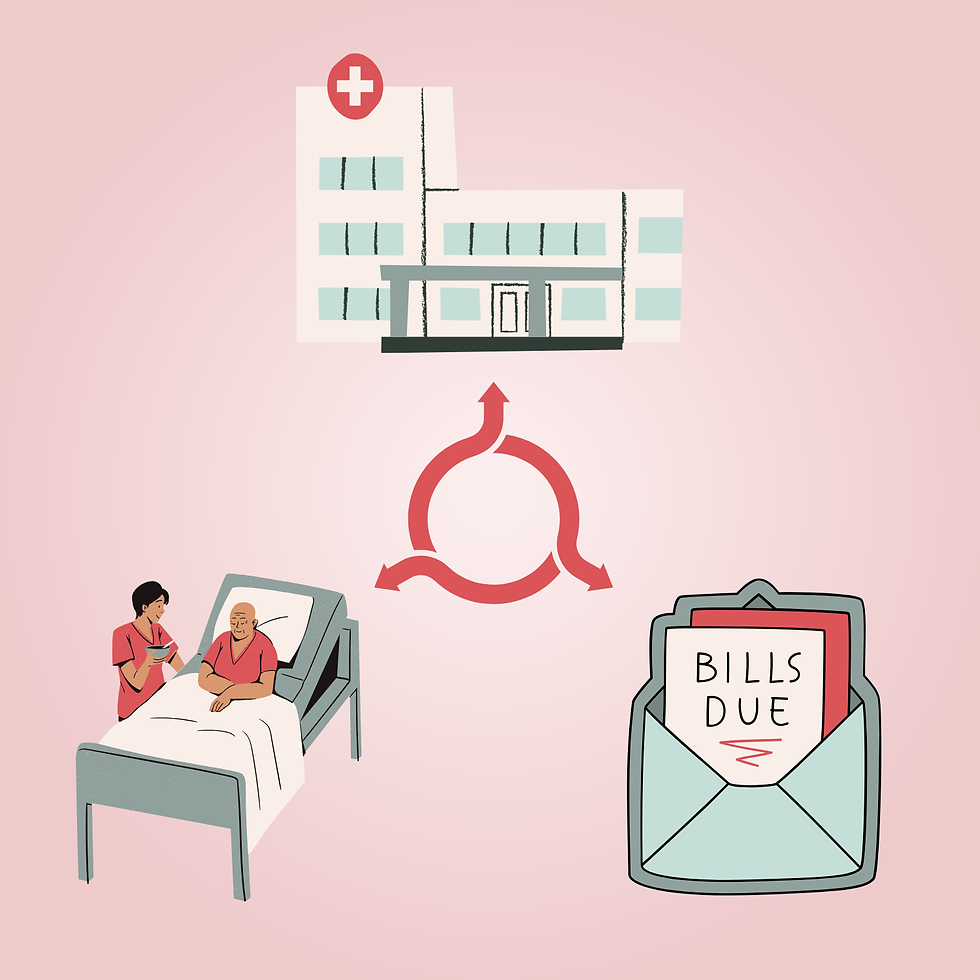“To Let Go or To Hold On?” Navigating the ethics of DNRs
- Will Sun
- Mar 4, 2024
- 3 min read

In 2018, Andy Jurtschenko received a standard procedure: a heart transplant (1). But after 24 hours, Jurtschenko hadn’t woken up. After investigation by a neurologist, Andy was found to have suffered immense brain damage and would likely remain in a vegetative state for the rest of his life. Faced with a difficult decision, Andy’s children requested a do-not-resuscitate order (DNR), which mandates physicians must not administer emergency care if one’s heart stops beating or breathing ceases (2). Yet, the primary physicians declined their request only eventually relenting after immense pushback. Later, Andy recovered consciousness – but in limited form. Andy’s story is one of many that reveals the ethical dilemmas of DNRs.
DNRs do not allow for resuscitative treatment, such as CPRs, defibrillators, and the delivery of certain drugs in the event of cardiac or respiratory arrest (3). While in-hospital DNRs affect the decisions of physicians, out-of-hospital DNRs apply to EMTs. Though different from physician-assisted euthanasia, where physicians actively induce death, like euthanasias, DNRs have significant ethical and legal complications.
Legally, DNRs lack legislation and policies regarding administration and decision-making. Within the U.S., DNRs require the explicit signature of a physician in order to be issued. Typically, those with terminal illnesses request DNRs, although fully healthy individuals can also do so. Ethically, DNRs pose a challenging question to healthcare providers, physicians, and patients. The American Medical Association ambiguously states that patients have the right to reject care, while doctors can also reject certain needs on a reasonable basis (4). But this oxymoronic statement leads to great debate in the medical community about whether DNRs are examples of withdrawing or withholding care. These debates lead to the pivotal questions: Are DNRs a form of passive euthanasia? Subsequently, with euthanasia being entirely outlawed in the U.S., should DNRs be illegal as well? Importantly, how do you consider patient autonomy? As seen in the story of Andy, if a patient is not mentally capable of making a decision, who makes the decision for them? With no clear guidelines for decision-making in DNRs, if a patient is incapable, conflict between the wishes of family members and friends can certainly occur, as it did with Terri Schiavio’s case in 2005 (5).
Lastly, there are also significant moral complications with doctors taking advantage of DNR orders. Investigations have found that during the height of the covid-19 pandemic, many doctors sought to impose illegal DNR orders on those with learning disabilities – also known as a blanket DNR that targets a certain group of people (6). Samuel R. Bagenstos, a law professor at Michigan Law School, best stated the implications of such actions as “caus[ing people with disabilities] to experience less full lives” (7).
Ultimately, as emergency and medical care continue to improve, the complexities behind DNRs will only become more dynamic. Thus, medical professionals and ethicists must continue to thoroughly evaluate this dilemma.
Reviewed by Bowen Kim
Design by Ting Ting Li
Citations
Chen, C. (2019, December 31). The family wanted a do not resuscitate order. the doctors didn’t. ProPublica. https://www.propublica.org/article/the-family-wanted-a-do-not-resuscitate-order-the-doctors-didnt
U.S. National Library of Medicine. (n.d.). Do-not-resuscitate order: Medlineplus medical encyclopedia. MedlinePlus. https://medlineplus.gov/ency/patientinstructions/000473.htm
Miceli, M. (2016). Bioethics in practice: Unilateral do-not-resuscitate orders. U.S. National Library of Medicine. https://www.ncbi.nlm.nih.gov/pmc/articles/PMC4896650/#:~:text=The%20answer%20is%2C%20generally%2C%20no,of%20cardiac%20or%20respiratory%20arrest.
31, J., & Jr., J. R. (2023, January 31). Physicians, not judges, should direct patient care. American Medical Association. https://www.ama-assn.org/about/leadership/physicians-not-judges-should-direct-patient-care#:~:text=Physicians%20are%20expected%20to%20provide,of%20medical%20treatment%20or%20intervention.
Weijer, C. (2005). A death in the family: Reflections on the terri schiavo case. Canadian Medical Association Journal, 172(9), 1197–1198. https://doi.org/10.1503/cmaj.050348
Alexiou, G. (2023, September 12). Doctors issuing unlawful “do not resuscitate” orders for disabled Covid patients “outrageous.” Forbes. https://www.forbes.com/sites/gusalexiou/2020/06/23/unlawful-do-not-resuscitate-orders-for-disabled-covid-patients-outrageous/?sh=3079ecdc6cf1
Ibid.



Comments